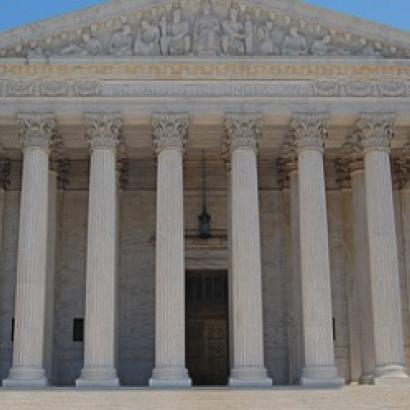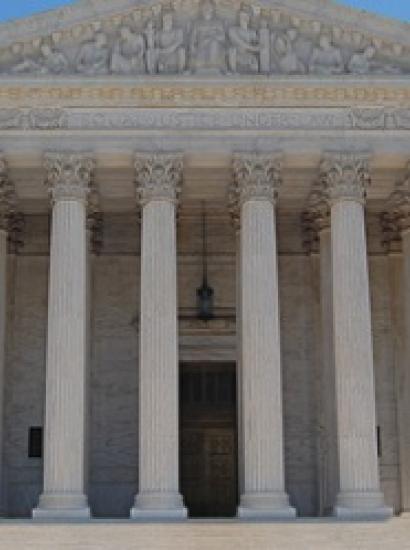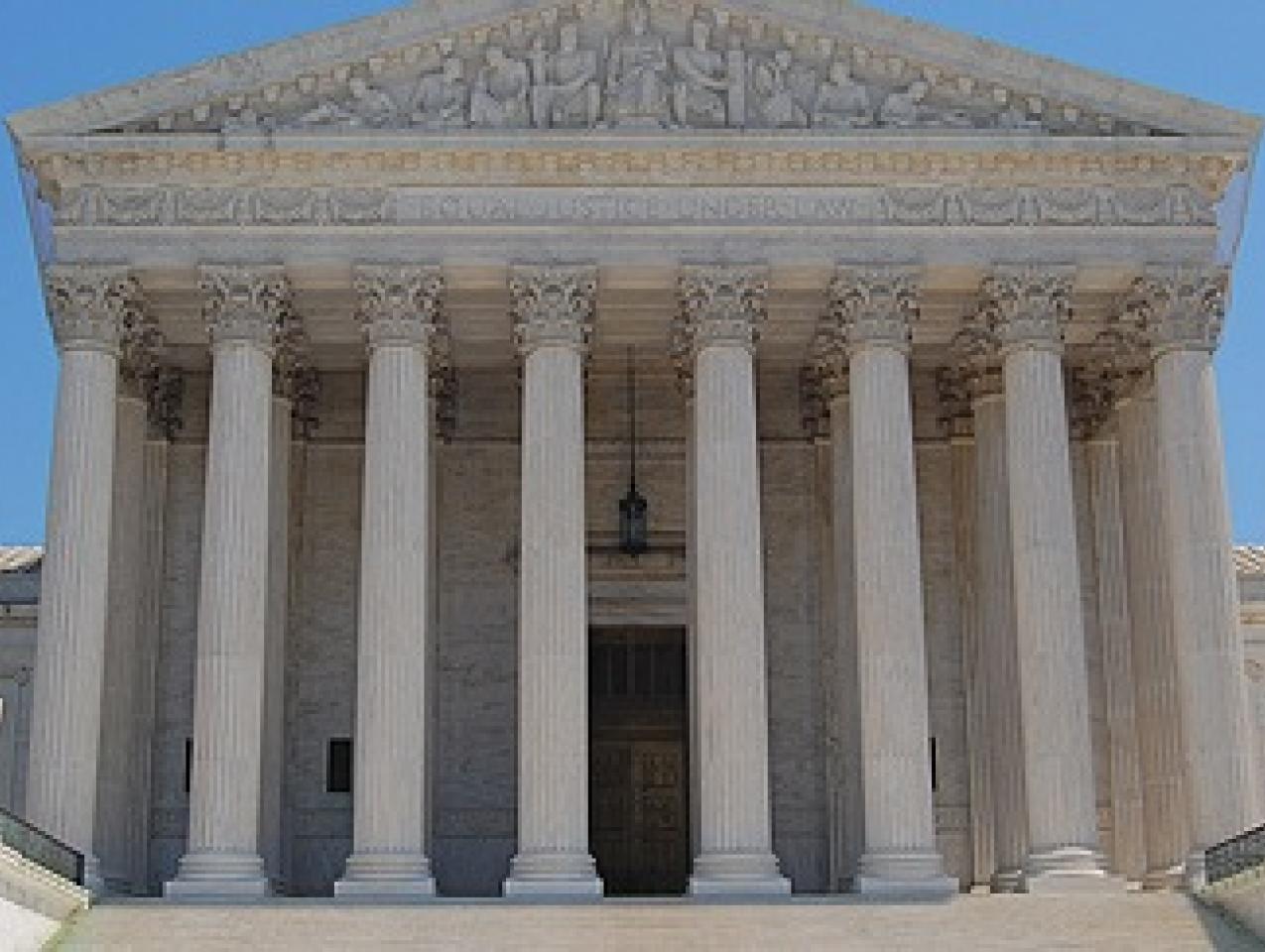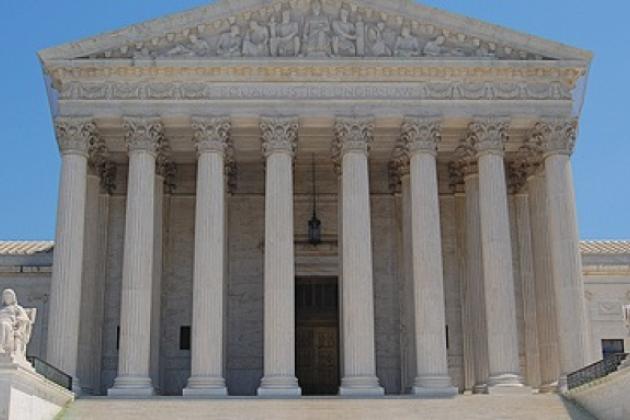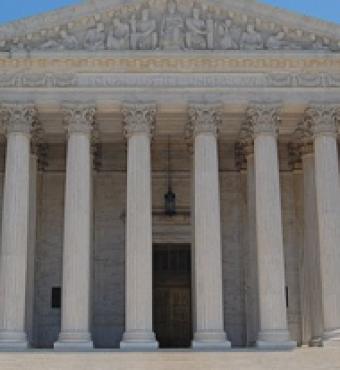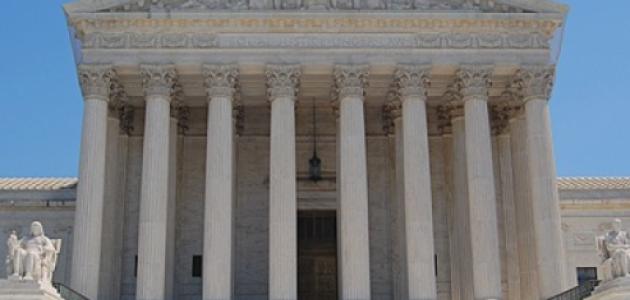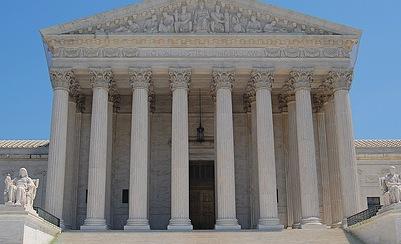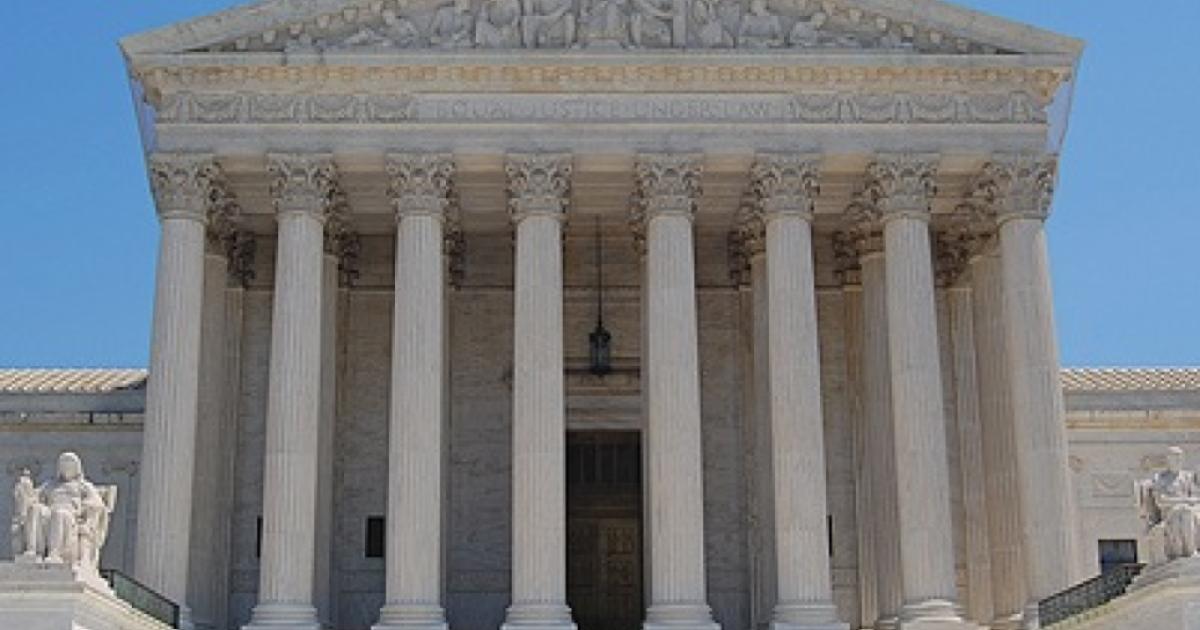- Law & Policy
- Regulation & Property Rights
- Health Care
In “Obamacare vs. The Commerce Clause,” Richard Epstein provides a devastating critique of Supreme Court commerce clause case law since the New Deal. Because it is “an indefensible line of cases,” Epstein argues “[t]he United States Supreme Court should confess error and acknowledge that its past decisions are bad both as a matter of constitutional history and constitutional theory.”
Professor Epstein is right. Despite recurrent claims by the Supreme Court that there are, in fact, limits on Congress’ commerce clause authority, the case law described by Epstein demonstrates the opposite. If the federal system conceived by the framers of the United States Constitution is to survive in anything more than name, the Supreme Court must push the restart button.
But Epstein does not think the Court will admit to three-quarters of a century of intellectual confusion, so he urges a far more modest result in the Supreme Court’s review of the constitutionality of the Patient Protection and Affordable Care Act. The Court should accept, says Epstein, “the sensible claim that commerce does not apply to transactions that people never entered into.” The Court would thus draw a line in the commerce clause sands by acknowledging the “indefensible pedigree” of Wickard v. Filburn, but would not undertake to correct for past errors.
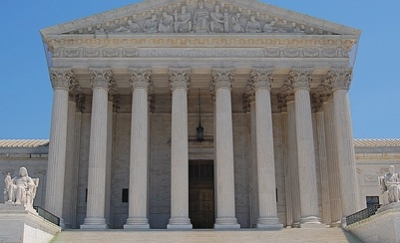
Photo credit: massmat, via flickr
Wickard is the New Deal-era case in which the Court upheld federal restriction of the acreage of wheat a farmer could grow, even when all the forbidden wheat was consumed on the farm. It marked the demise of the commerce clause as the enumeration of a limited federal power, and the emergence of that clause as a source of what is effectively a Congressional police power. Absent Epstein’s suggested line in the sand, Wickard requires only that Congress find that the aggregate economic impact of individual decisions to not purchase health insurance have a substantial effect on the interstate health insurance market.
But Epstein is not optimistic, even with these limited ambitions. In a prediction based on judicial politics, as opposed to the substantive issue, Epstein reluctantly concludes that “the bet has to be that the mandate will be affirmed.” His pessimism about the prospects for a major rethinking of commerce clause doctrine is rooted in the fact that even the conservatives on the Court have been cautious in suggesting limits to Congress’ power. Restoration of the federal system contemplated by the Framers will be accomplished only by overruling Wickard, and Epstein believes that Justice Thomas is the sole member of the Court willing to do that.
Though the smart money will be with Epstein’s forecast of more doctrinal incrementalism, if not with his wager on the precise direction it will take, we should demand and expect better from our nation’s highest court. As recently as its last term in Bond v. United States, the Court suggested a foundation for what might be called, in today’s parlance, a “reset” of commerce clause doctrine in particular and federalism doctrine in general.
The structure of federalism protects individual liberty from government excess.
The issue in Bond was whether an individual has standing to challenge the validity of a federal law on the ground that Congress did not have authority to enact the law and was therefore in violation of the 10th Amendment, which states that “[t]he powers not delegated to the United States by the Constitution, nor prohibited by it to the States, are reserved to the States respectively, or to the people.” In response to the government’s argument that only a state government can challenge the constitutionality of Congressional acts alleged to infringe on the powers of the states, Justice Kennedy, writing for a unanimous court, held that the individual claimant does have standing because “[w]hen government acts in excess of its lawful powers, . . . liberty is at stake.”
This was not an off-the-cuff throwaway line that might have been overlooked by the eight concurring justices. Kennedy’s argument that the structure of federalism, like the separation of powers, protects individual liberty from the excesses of government authority constitutes roughly one third of the opinion and is central to the holding that the plaintiff has standing.
Quoting from the Court’s 1999 opinion in Alden v. Maine, Kennedy observed that the “federal system rests on what might at first seem a counterintuitive insight, that ‘freedom is enhanced by the creation of two governments, not one.’”
“The Framers,” wrote Kennedy, “concluded that allocation of powers between the National Government and the States enhances freedom, first by protecting the integrity of the governments themselves, and second by protecting the people, from whom all governmental powers are derived.” No less a Framer than James Madison made precisely this argument in Federalist No. 51: “In the compound republic of America, the power surrendered by the people is first divided between two distinct governments, and then the portion allotted to each subdivided among distinct and separate departments. Hence a double security arises to the rights of the people.”
Although most federalism cases focus exclusively on the distribution of power between the federal and state governments, Kennedy underscores that “[b]y denying any one government complete jurisdiction over all the concerns of public life, federalism protects the liberty of the individual from arbitrary power.” Quoting from the Court’s 1992 opinion in New York v. United States, he adds that “[s]tate sovereignty is not just an end in itself: ‘Rather, federalism secures to citizens the liberties that derive from the diffusion of sovereign power.’” In a concurring opinion, quoting from the 1928 decision in Nigro v. United States, Justice Ginsberg is even more adamant about the individual right to be free of the force of unconstitutional laws: “In short, a law ‘beyond the power of Congress,’ for any reason, is ‘no law at all.’”
Every justice on the current Court approved Kennedy’s opinion in Bond, so they are on the record agreeing with the argument that federalism protects liberty. And they will be reminded of that point as they read the 11th Circuit’s decision in Susan Seven-Sky v. Holder where Judges Dubina and Hull, also quoting from New York v. United States, write: “The Constitution does not protect the sovereignty of States for the benefit of the States or state governments as abstract political entities . . . . To the contrary, the Constitution divides authority between federal and state governments for the protection of individuals.”
Under current commerce clause doctrine, threats to liberty are irrelevant.
In a case involving standing, like Bond, it is relatively easy to assert that the federal structure serves to divide power and thereby protect liberty. The result of finding standing is that the case can go forward on the merits, but the Court does not need to decide whether Congress has done injury to the individual plaintiff by exceeding its constitutional authority. The more challenging question is this: In deciding the question of constitutionality on the merits, what is the relevance of the recognition that the federal structure serves to protect liberty?
Under existing doctrine, the standard of review in a commerce clause case is the rational basis test. As applied in the challenge to Obamacare, that test requires the government to demonstrate only that Congress could have rationally concluded that, in the aggregate, individual health insurance decisions affect the interstate health insurance market and that, without requiring all individuals to purchase health insurance, the objectives of the law could not be realized. Does it make any difference to acknowledge that the federal structure protects individual liberty? It should, but under existing doctrine it does not.
The rational basis test reflects a judicial presumption of constitutionality rooted in the general proposition that courts should be deferential to their coequal branches of government. But when individual liberty claims arise under the Bill of Rights or other specific constitutional liberty guarantees, the Supreme Court has consistently held that the government must satisfy a higher standard of review. When liberty is a risk, there is no presumption of constitutionality. Given that federalism cases implicate liberty, courts should apply a standard of review requiring a showing that the separation of powers between Congress and the states protects liberty.
Under current commerce clause doctrine, threats to liberty are irrelevant. Indeed there would be few people chosen at random from the telephone directory who would not conclude, from a reading of Professor Epstein’s explanation of the precedent, that Congress can regulate virtually every aspect of American life without regard for individual freedom. And, of course, most aspects of their lives would confirm the truth of that conclusion. As Judges Dubina and Hull wrote in their opinion, “[t]he ‘substantial effects’ doctrine, along with the related ‘aggregation’ doctrine, expanded the reach of Congress’s commerce power exponentially. Nonetheless, the Supreme Court has staunchly maintained that the commerce power contains outer limits which are necessary to preserve the federal-state balance in the Constitution.” But what are those limits? It seems the emperor has no clothes.
Regrettably, Epstein is probably right in predicting that the Court is likely to find the individual mandate constitutional. In that event the Court will have to maintain the pretense that ours remains a federal system in which Congress has only enumerated powers. But no one will be fooled. The Court will look silly. And liberty will suffer another blow.
The challenge to the Affordable Care and Patient Protection Act presents an opportunity for the Court to move from the stirring rhetoric of its unanimous opinion in Bond to commerce clause doctrine that actually defines the limits of Congress’ enumerated powers. The Court should take seriously James Madison’s statement in Federalist No. 45 that the powers of the federal government are “few and defined,” while those remaining in the states are “numerous and indefinite.”
There is much in the briefs and in the 6th Circuit and D.C. Circuit court opinions to the effect that health care is a national problem requiring a national solution, and that the individual mandate is necessary to making Congress’ chosen solution work. But all of that should be irrelevant to the Court’s determination of whether Congress has constitutional authority to act. In making that determination, the Court should get serious about the direct correlation between government power and individual liberty and recognize that, again in the words of Madison, “there are more instances of abridgment of freedom of the people by gradual and silent encroachments by those in power than by violent and sudden usurpations.”








